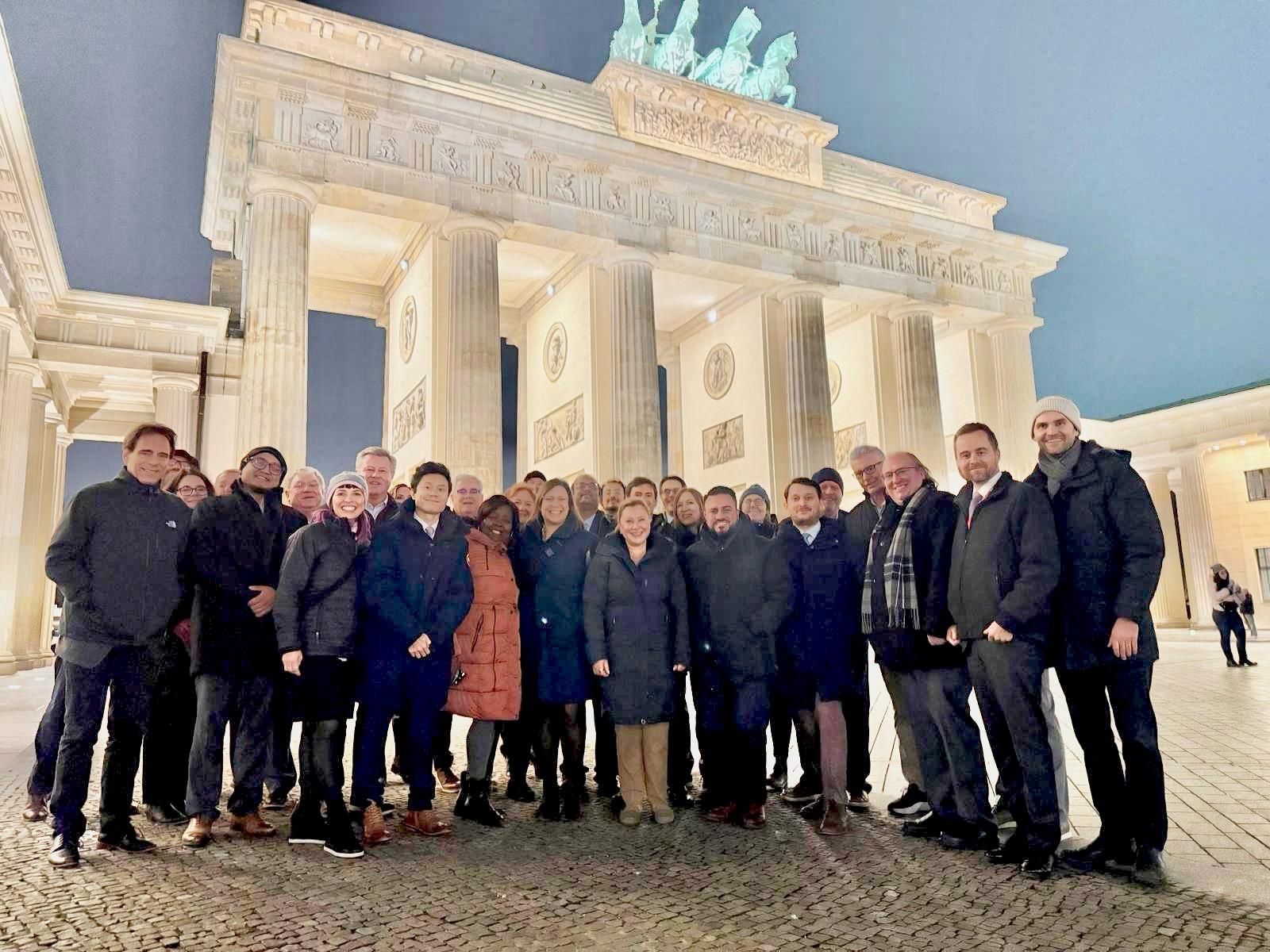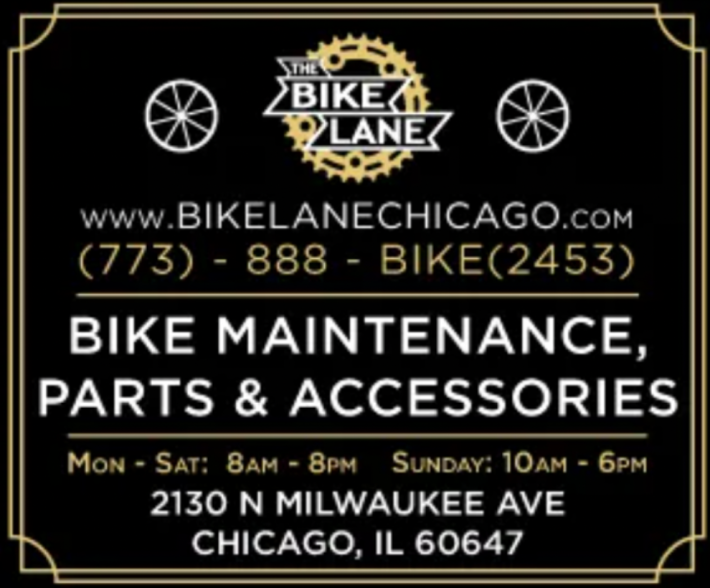
Last month, a delegation of Illinois state representatives visited Germany to tour transit systems in and between two major cities. The trip was inspired by an action plan issued by the Chicago Metropolitan Agency for Planning, which cited Berlin and Munich as successful case studies for a Chicagoland transit system currently facing an existential crises. Local ridership suffered during COVID-19, and ridership has yet to return to 2019 levels. The CTA, Metra, and Pace are facing a staggering $730 million total budget shortfall next year, when federal pandemic relief funding will run out.
The CMAP plan proposes an extensive list of system improvements, revenue sources and governance models to restore and improve Chicago-area transit.
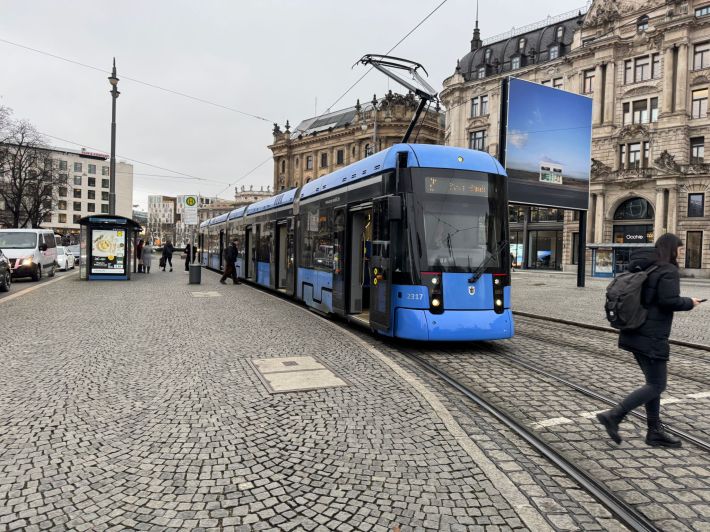
The Metropolitan Planning Council's Senior Director Audrey Wennink said the purpose of the trip was to inspire Illinois decision-makers to aim for creating world-class transit. "Given the magnitude of the funding and governance reforms recommended by the [CMAP] plan, the idea was raised for lawmakers to experience for themselves what kind of transit experience the German model delivers to help understand what could be possible if we undertake reforms to unify our transit system."
Unifying Chicagoland's four transit agencies – CTA, Metra, Pace, and the Regional Transportation Authority that oversees them – into a single entity has been the focus of several advocacy groups and transit-friendly legislators over the last year. Those in favor of consolidation argue that a central agency would be more efficient, better coordinated, and provide improved service and value to riders, especially those transferring between the three systems. Last April, Rep. Kam Buckner (D-26th) introduced a bill to the Illinois General Assembly to consolidate the four agencies into a single Metropolitan Mobility Authority. Rep. Eva-Dina Delgado (D-3rd) and Sen. Ram Villivalam (D-8th) proposed companion legislation shortly thereafter.
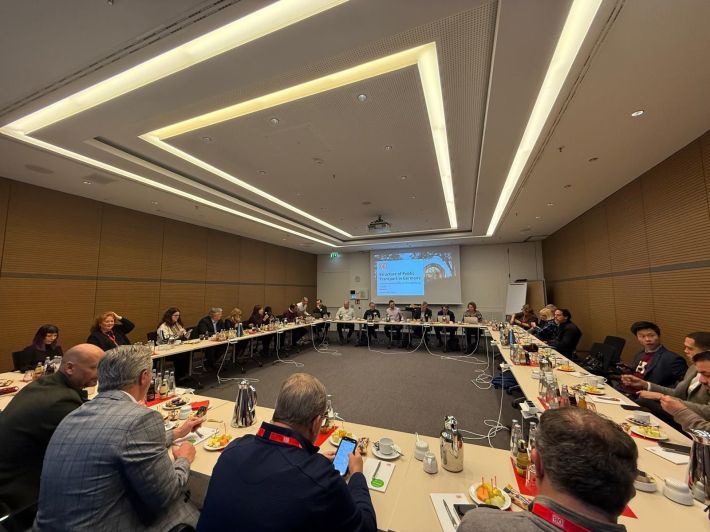
Rep. Delgado, Rep. Villivalam, Wennink and Sen. Robert Peters (D-13th) were part of the delegation to Germany in December. The trip was organized by Deutsche Bahn (DB), a government-owned rail operator. Delegates rode the U-Bahn subway in Munich and Berlin, the S-Bahn regional rail, and the urban tram in Munich. To travel between the cities, they took a high-speed "ICE" rail line – a 3.5-hour train ride that would take 7 to 8 hours by car.
Sen. Peters said his biggest takeaway from the trip was how easy the German system is to use. "It was as if I could take Metra, get on the Red or Blue line, and then a bus and it was all fluid," he said. "You couldn’t tell there were different agencies operating different lines. Everything was coordinated: timetable, payment systems. It was magnificent."
Although these different rail lines within and between cities are run by different operators, the Illinois lawmakers said the user experience was seamless. (This is due to all operators in a single region being part of a transit association, known as Verkehrsverbünde.)
A single app allows users to purchase fares for all modes of transit, except the high-speed intercity train. Sen. Villivalam said, "They live, work and breathe by the motto 'one network, one timetable, one fare.' The accountability of having the timetable and network was integrated to the point that I did not experience more than a three-minute delay. The integration was bar none in terms of interconnectivity between what they would consider the Loop, the surrounding neighborhoods, the suburbs and rural areas."
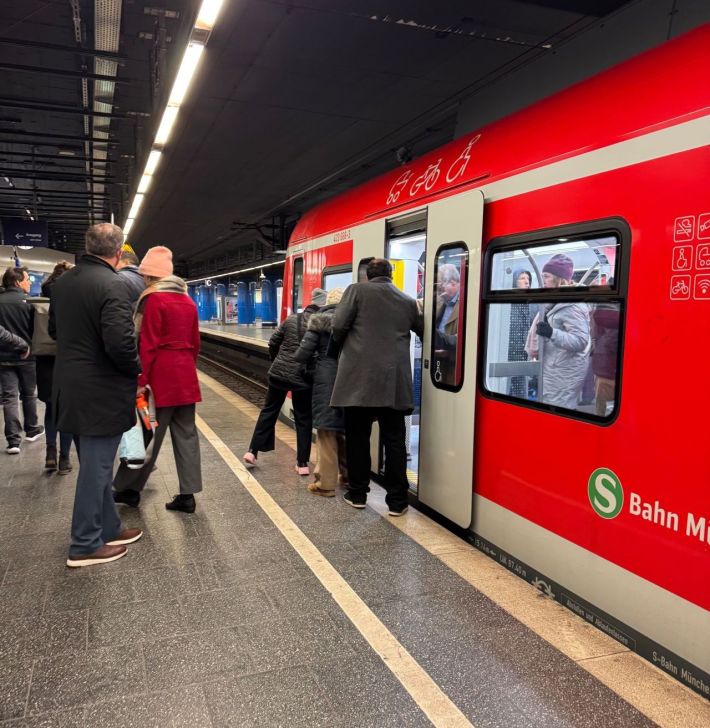
Sen. Villivalam added that this well-integrated, convenient public transportation system has made transit more attractive than driving, resulting in high ridership. "The car ownership levels per household are similar between Chicago and Munich, yet Munich has half the population size but double ridership on an annual basis," he said.
Though a smaller city, Munich is a good point of comparison because it has similar population density to Chicago. "It’s not that people own fewer cars, people make the conscious choice to use public transit. Part of that is not just the interconnectivity of the transit system, but how that’s in partnership with transit-oriented development and making sure there’s neighborhood-to-neighborhood and suburb-to-suburb transit."
This unified experience "didn’t happen by accident," Wennink said. "This was a policy choice. The transit associations that coordinate among the various operators are a structure developed and refined over time to deliver a very high-quality service that is easy for riders to use."
Anther effective measure in the German system is frequent service throughout the day – not just rush hour – and a low monthly transit subscription covering all forms of urban transit. Winnink said that even though work-from-home levels in Berlin and Munich are similar to Chicago at two to three days per week, the public transportation systems have fully recovered pre-pandemic ridership levels.
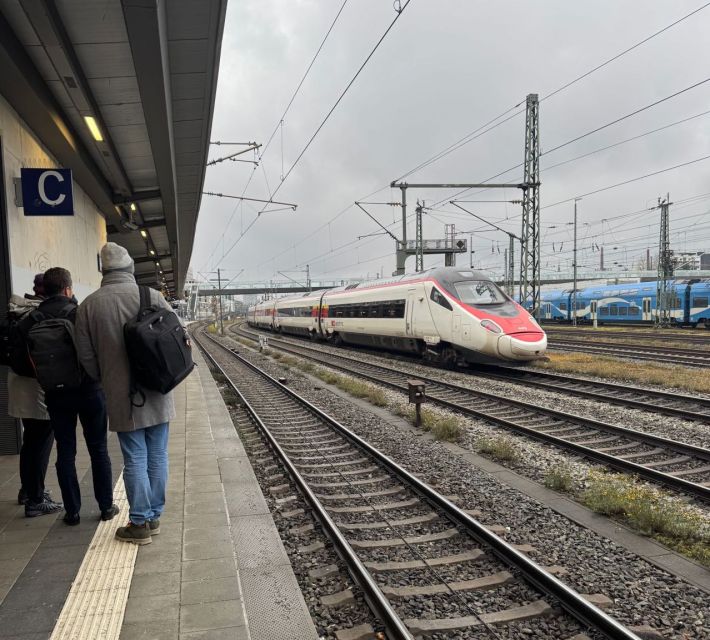
The word accountability came up frequently in my conversations with the legislators. Asked about how the visit influenced his thoughts on consolidation of the Chicagoland systems, Sen. Villivalam said, "I stand by the fact that there isn’t another [transit] system that has four agencies, 21 [governmental] authorities and 47 different [board members] appointed to oversee it." He added, "At the same time, my biggest takeaway from Germany is that the intentionality and accountability is of the utmost importance. There’s accountability to the operators: if you’re X number of minutes late, you will be penalized. If you’re on time there’s opportunities to receive more funding. The delegation trip showed there can be integrated service that provides what riders want to see."
Sen. Peters said that the term consolidation is a "bad framing." He explained, "Consolidation in this country often means cutting. What we need is unification of our region. You have to balance what labor wants and what transit wants and I think we can do that. You can centralize accountability to make sure whoever is operating what is doing it well."
“I fell in love with Berlin and it’s so similar to Chicago,” Sen. Peters added. "[The U.S.] is the richest country in the world and we should be able to provide people with more."

Did you appreciate this post? Streetsblog Chicago is currently fundraising to help cover our 2025-26 budget. If you appreciate our reporting and advocacy on local sustainable transportation issues, please consider making a tax-deductible donation here. Thank you!
